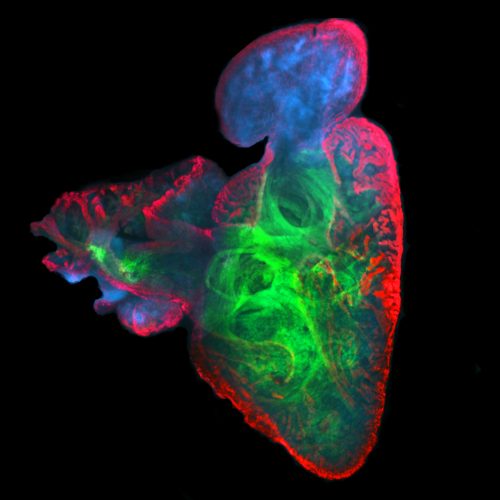
Congenital heart disease affects close to 1% of live births, and can have a severe impact on the health and mortality of children. Despite many years of research, little is known about the stem cells that go on to form the different types of cells found in the heart. These cells are called cardiac progenitors. As they are the “building blocks” of the heart, cardiac progenitors are an ideal vehicle to fix the damaged heart. We study this in zebrafish embryos, which allow live and direct visualization of all stages of heart development. Further, the adult zebrafish heart can fully regenerate, a process we seek to understand via the lens of cardiac progenitor biology in order to allow human cardiac repair.
Research in the Scott lab is focused on understanding the earliest events of cardiac development, and how dysfunction in the gene regulatory networks that govern heart development causes congenital heart disease. We employ a combination of genetic, transgenic, live imaging, bioinformatic and genomics approaches to understand how genes regulate cardiac development at the cellular level. A major interest is in conserved non-coding regulatory elements and their roles in heart development and disease.

